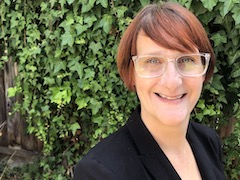The CUNY SPH Office of Accessibility Services (OAS) coordinates and provides reasonable accommodations and support services to students with disabilities.
The reasonable accommodation process is student-driven and self-advocacy focused. CUNY SPH Office of Accessibility Services (OAS) reviews student disability documentation for accuracy and specificity and works in collaboration with students, instructors, and CUNY SPH staff to ensure that students with disabilities are provided with equal access (a ‘level playing field’) to CUNY SPH’s academic and non-academic programs and activities.
For accommodation implementation, instructors and applicable CUNY SPH staff may be informed of the granted accommodation(s), but not the disability or disabling medical condition of students.
For more, see the CUNY

